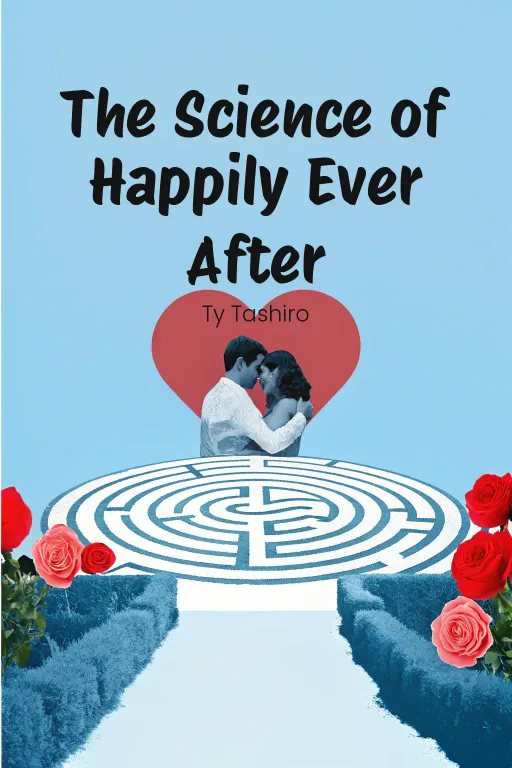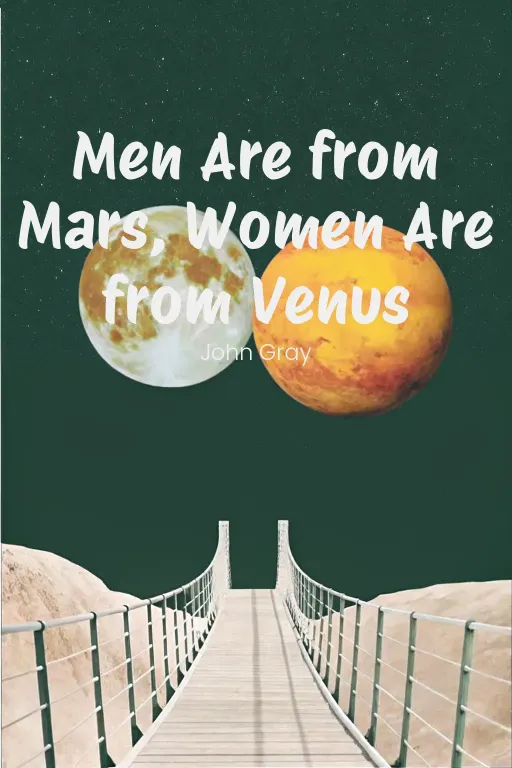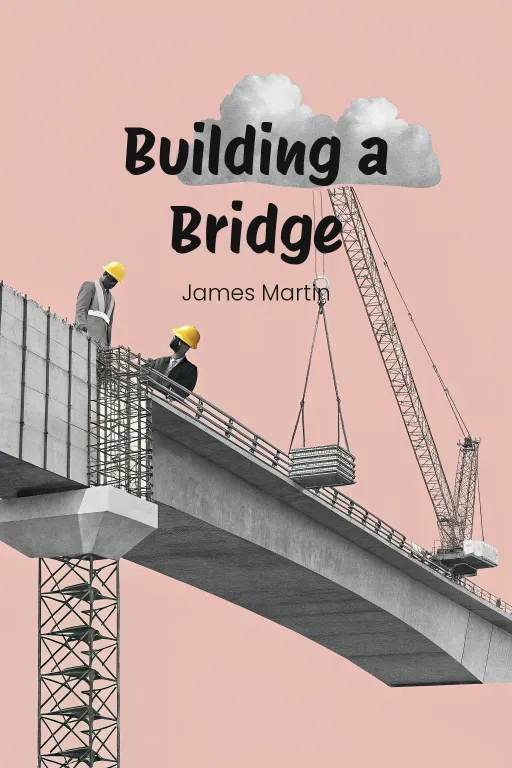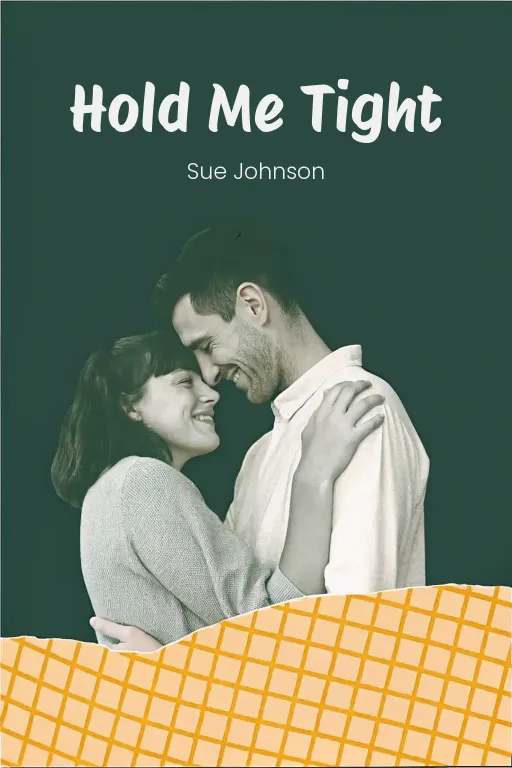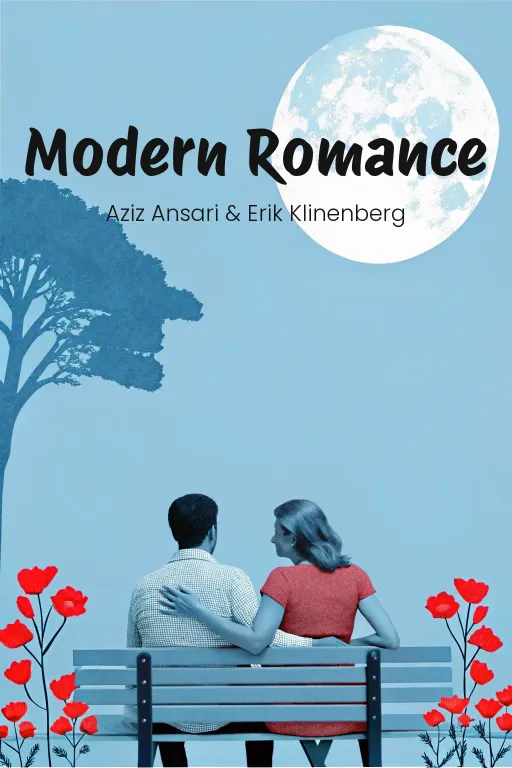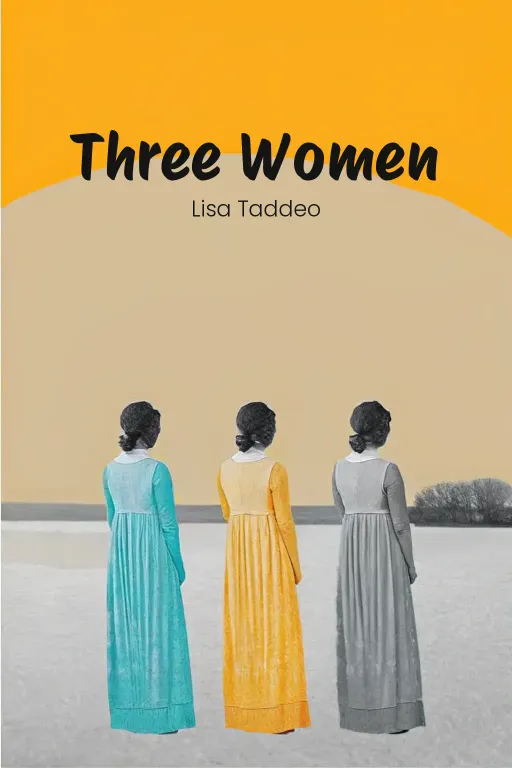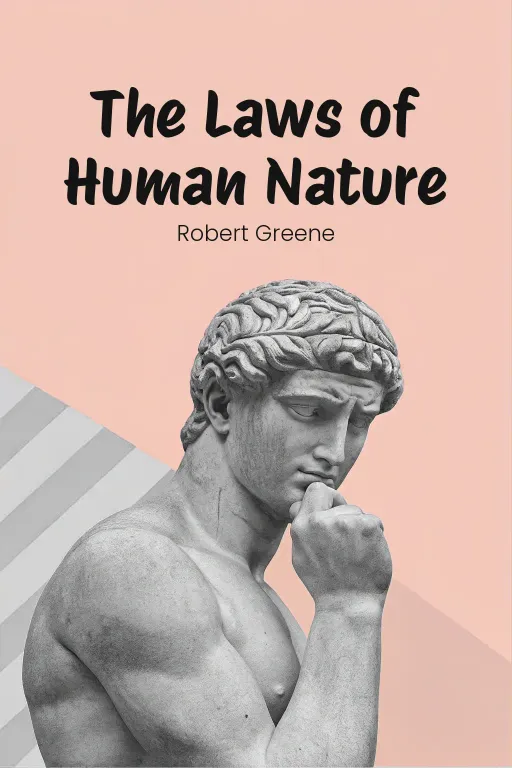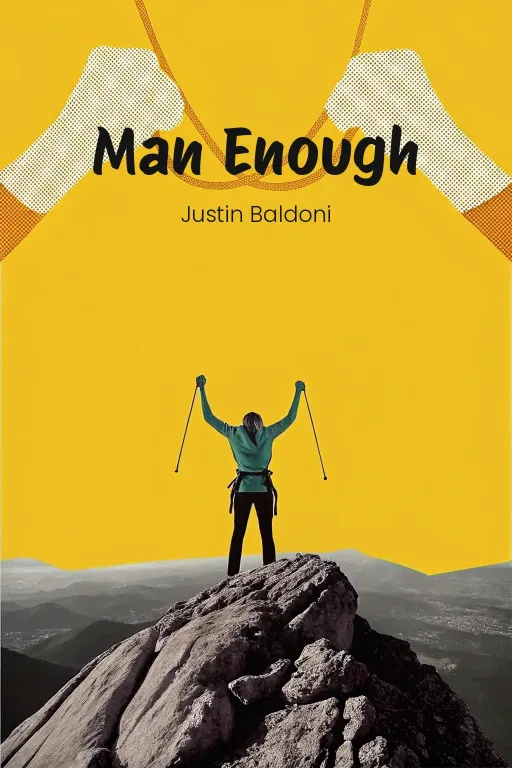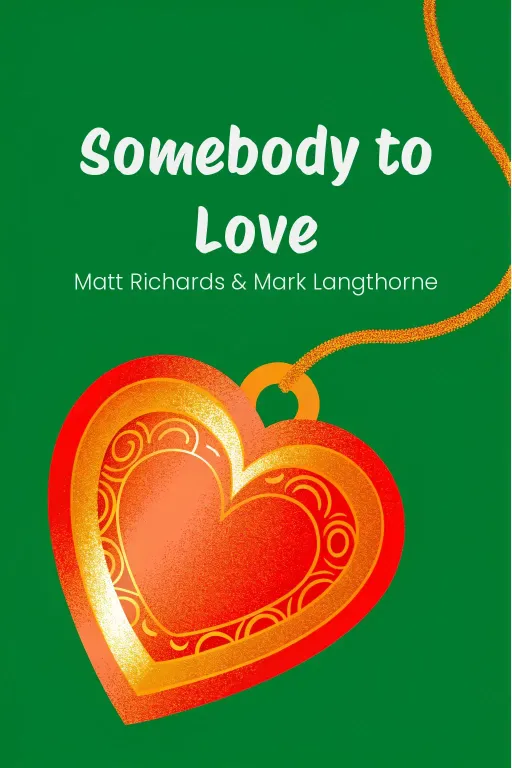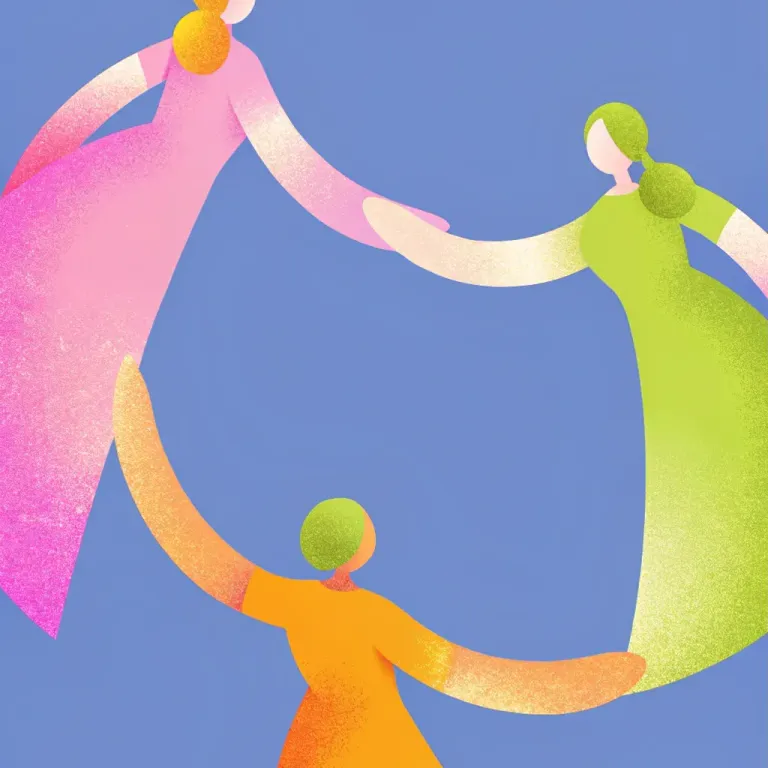
Desire Decoded: Beyond Societal Judgment
Podcast by The Mindful Minute with Autumn and Rachel
Desire Decoded: Beyond Societal Judgment
Part 1
Autumn: Hello everyone, and welcome! Today we're diving deep into Lisa Taddeo's powerful book, “Three Women”. It's a raw and compelling look at the lives of three very different women, all grappling with the same fundamental issue: how their desires clash with a world that constantly tells women what they should want and how they should feel. Rachel: Right. I mean, think about it. How often does society dictate what's “acceptable” for women when it comes to love, sex, and just being themselves? This book doesn't shy away from any of that. It throws you right into the heart of the mess, leaving you feeling... well, unsettled, but also deeply reflective. Autumn: Exactly! Taddeo follows Maggie, Lina, and Sloane – three real women living vastly different lives, right? Maggie is dealing with the fallout from a relationship that completely upended her world. Lina is stuck in a loveless marriage, desperately craving connection. And Sloane? She appears to have this perfect life, but her choices are constantly under a microscope. Together, their stories paint a rich, complex picture of what female desire “really” looks like beneath the surface. Rachel: It's not just about their desires, though, is it? It's about the judgment they face for having those desires in the first place. These stories really highlight how societal norms – whether it's about marriage, age, or even body image – shape everything from the opportunities they get to their own sense of self-worth. Seriously, this book is a reality check, in all the uncomfortable ways. Autumn: Absolutely, and that's exactly what we're going to be discussing today. We're going to be exploring three main themes. First, how the immense weight of societal expectations influences their lives and the choices they make. Second, the internal struggles these women face as they grapple with feelings of rejection and try to figure out their own self-worth. And finally, how resilience and self-discovery become their paths to healing, ultimately showing that even in vulnerability, there's incredible strength. Rachel: So, think of today's conversation as… okay, what's a good metaphor here? Maybe like unraveling three really complex knots? Each theme reveals a different way society constrains women's desires with rules and double standards. But by the end, we see how they manage to find their own way to freedom. It's provocative, it's definitely tough, and yeah, it's heavy. But honestly, it's so worth exploring. Autumn: Couldn't agree more. “Three Women” is more than just a book; it's a mirror, reflecting so many unspoken truths about what it means to navigate desire in a world that's constantly judging you. So, let's get started, shall we?
Female Desire and Societal Judgment
Part 2
Autumn: Okay, so picking up where we left off, let's zoom out a bit. Female desire, on the surface, it feels so personal, right? But Three Women really throws into sharp relief how much it's shaped—sometimes even suppressed—by society. I mean, from the cultural obsession with "ideal" femininity to the way women's stories are (or aren't!) heard, there's this constant pressure to conform, isn't there? Rachel: Exactly, Autumn. It's like there’s this insane, invisible checklist. Be desirable, but not too sexual. Be, you know, emotional, but not, god forbid, needy. And heaven help you if you actually act on your desires if they don't align with what society deems acceptable. And Maggie! Maggie's story is the perfect example because her relationship with Aaron Knodel is this really disturbing look at how we treat authority versus vulnerability. Autumn: Right. Maggie starts out as this super vulnerable teenage girl, you know, totally thrilled by the attention of someone she admires, a teacher, a mentor figure. But then that admiration turns into something deeply inappropriate. Aaron crosses all sorts of professional lines, and Maggie is left just grappling with all these feelings—love, shame, betrayal. But the most striking is how the court trial isn't so much about what happened to Maggie, but more about Aaron's image. It's no longer about her trauma; it's about how Aaron doesn't "fit" the stereotype of a predator. Rachel: Oh, because he’s the "great guy." Of course. The defense just leaned into his reputation, Teacher of the Year, family man... it's honestly maddening. And meanwhile, Maggie's story is dissected like she's on trial, not him. Her desire for connection, her need to be seen and valued are suddenly framed as this teenage infatuation or, worse, even manipulative! It's like, Autumn, we love to protect the powerful, don't we? Especially when that power looks clean-cut and respectable. Autumn: It's so true, Rachel. It's what makes Maggie’s journey so heartbreaking. Her desire for emotional safety, for validation, is twisted into something shameful. I mean, this isn't just Maggie's story either: it's systemic. How often is women’s trauma questioned or dismissed because of who they’re up against? It’s like their pain is less credible if it disrupts a "feel-good" narrative. Rachel: Exactly! It's the question we're all avoiding: why do we prioritize a man's reputation over a woman's reality? Think about it: Aaron Knodel's family photos and Teacher of the Year awards become his shield while Maggie's voice just... drowns under the weight. Gosh, it's heavy. Autumn: And then we have Lina. Her story shines a light on how love and desire are shaped by the expectations of family and culture from a young age. Lina grows up being told she’s not enough, right? Her mother criticizes her appearance, undermines her self-worth, and so Lina internalizes this idea that she's only worthy of love if she's somehow "special" or beautiful enough. Rachel: Which creates this nightmare spiral, of course. Lina’s longing for love turns into this obsessive thing with Aidan. And he barely reciprocates. Yet, Lina pours every ounce of hope, every bit of desire into this what... non-relationship? It kills me, Autumn, because she's not just chasing him, she's chasing the validation that his attention represents. Autumn: And that's the real tragedy. Lina builds this whole fantasy life around Aidan, not necessarily because of who he is but because of what he symbolizes: a sense of being wanted, of being loved. It's a stark reminder of how society ties a woman’s value so tightly to her desirability. If you’re not deemed beautiful or alluring, it feels like you don't even have the right to ask for love or fulfillment. Rachel: The irony is that Aidan, the guy Lina idealizes, isn’t giving her an escape as much as reinforcing those societal norms. By withholding any real emotional investment, he becomes the gatekeeper of her self-esteem. It's a vicious cycle, one I think a lot of people can relate to even if they don’t admit it. Autumn: Which brings us to Sloane. On the outside, she’s the most “empowered” of the three women. She's married, she's successful, and at least on the surface, she’s living out her desires unapologetically. But even here, societal judgment creeps in. Sloane’s open marriage is such a deeply personal choice, but it’s treated like it's public property. People label her as deviant or promiscuous, reducing her choices down to some simplistic, moralizing narrative. Rachel: But is Sloane really free? Is she performing freedom? On one hand, she's challenging these traditional norms of marriage, female sexuality—refreshing. But on the other hand, what about how much of her agency is shaped by someone else’s gaze, including her husband’s? Autumn: That's a valid question, Rachel, and I think the book wants us to wrestle with that. Sloane’s exploration of her desires is empowering in its own way; she's making choices for herself, absolutely. But society steps in to make sure that these choices aren't truly hers alone. They’re constantly under a microscope, judged and redefined by how others perceive her. Rachel: And that's the real kicker, isn’t it? All three women are striving for authenticity, for a way to express what they want. But in Maggie’s courtroom trial, Lina’s inner monologue, and Sloane’s outward rebellion, it's the same… None of them escape judgment. What is “with” us, Autumn? It's like society's saying, "You can have desire, as long as it fits neatly into our box." Autumn: Exactly. But what makes Three Women so powerful is that despite all this scrutiny, these women reveal something deeper: resilience. Even in the face of judgment and impossible standards, they keep pushing forward, trying to claim their own narratives. That's what stays with me—their humanity, their courage to articulate what so many women feel but aren’t always allowed to say.
Struggles with Self-Worth
Part 3
Autumn: So, moving on from the societal constraints, it's natural to consider the personal battles each woman faces when trying to reconcile their desires with their sense of self-worth. We've laid the groundwork; now let’s dive into the personal and emotional consequences of these pressures, starting with Maggie’s story. Rachel: Maggie's situation is just heartbreaking. I mean, you've got this teenage girl, already dealing with a tough home life, an alcoholic father who eventually takes his own life, and she turns to her teacher, Aaron Knodel, looking for some kind of support, some kind of validation. And that trust just gets completely shattered in the worst way. Autumn: It’s such a devastating dynamic, isn’t it? Maggie's craving stability, some emotional security, and Aaron initially fills that void, only to exploit the power imbalance between them. But what's so striking is how Taddeo really captures Maggie's internal conflict. She's drawn to Aaron for the validation he offers, but at the same time, she's deeply scarred by what that relationship ultimately represents. Rachel: And those courtroom scenes… Oh my god, they're infuriating. Instead of focusing on Maggie's pain, the trial becomes all about Aaron's reputation. He's painted as this perfect guy—a celebrated educator, a family man. It’s like society just can't accept that a man with such an image could be capable of manipulation or even abuse. Meanwhile, Maggie's story is systematically torn apart and it’s just dehumanizing. Autumn: Absolutely. It's such a clear reflection of this wider societal bias where victims of abuse, particularly women, are the ones who have to prove their credibility, while the perpetrators are often treated like exceptions. And for Maggie, the weight of that disbelief is just crushing. She's essentially asking for justice not just for herself, but for every woman whose story has been questioned, whose voice has been silenced. Rachel: And that just destroys your self-worth, right? I mean, Maggie's already questioning her own story. She's wondering if she misinterpreted affection or whatever. But then the courtroom just makes it worse by forcing her to confront a world that says, "Your pain doesn't matter." So it's no wonder she's haunted by that question: "Why didn’t anyone believe me?" It’s not just about her own case; it’s about a whole system that values power over empathy. Autumn: It’s a really stark contrast to Lina’s story, where her struggle with self-worth isn’t rooted in a specific traumatic event like Maggie’s, but rather in a lifetime of being made to feel like she's not good enough. Her mother's constant criticism, society's dismissal of women who don’t fit certain standards, it all creates this perfect breeding ground for insecurity. Rachel: Exactly, and Lina's story resonates because her longing for love and desire feels so universal, right? She's trapped in this loveless marriage where she's practically invisible, and Aidan becomes this beacon of validation for her. But, let's be honest, Aidan treats her like an afterthought, doesn’t he? And yet, she invests so much of her own self-worth in every interaction with him – it's painful to watch. Autumn: Yet, at the same time, it’s also relatable for many, which is what Taddeo does so brilliantly. Lina's obsession with Aidan isn’t really about “him” as a person—it’s about what he symbolizes: proof that she's desirable, that she's worthy of love. She meticulously prepares for their meetings, agonizing over every detail, only to be met with his indifference. It’s this cycle of hope and rejection that constantly erodes her sense of self. Rachel: And the real tragedy is how much this echoes real-world societal conditioning, especially for women. Lina's taught— explicitly by her mother and implicitly by society—that her worth is tied to her appearance, to her ability to attract male attention. So when Aidan gives her these tiny scraps of affection, they feel monumental because she’s been starved of it for so long. Autumn: It's, heartbreaking, and it really feeds into that bigger theme of women being expected to mold themselves to fit other people's standards. Lina’s desires, that yearning, becomes suffocating—you know, like that lingering smell of meatloaf in her mother’s house, inescapable. It's a perfect metaphor for all the expectations that surround her, the sense of being stuck in an identity that she didn’t actually choose. Rachel: Now, Sloane's story kind of flips the script a bit, doesn’t it? Outwardly, she’s everything Lina’s not, yeah? Confident, attractive, successful. But even she isn't immune to these struggles with self-worth. On the surface, her open marriage and her sexual freedom seem empowering, right? But as her story unfolds, it becomes clear that there's so much more complexity underneath, isn't there? Autumn: Precisely. Sloane is walking this tightrope between claiming agency over her own desires and dealing with the judgment society throws at her for it. She’s reduced to gossip, to scandal, to an object, even as she tries to assert her power. That contradiction becomes a constant source of reflection of her. Rachel: And a source of doubt, too, right? Is Sloane truly free in her choices, or is she just performing this version of empowerment that her husband and other people expect from her? I mean, with her past and judgmental mother, and her entangled love affairs with people like Aidan, there’s just this constant question: How much of her identity is actually hers, and how much is shaped by the way other people look at her? Autumn: That's what's so poignant about her story. Sloane's choices—her unapologetic sexuality, her open marriage—are liberating in one sense, but they also represent this kind of resistance against the limitations she's faced her entire life. They don't erase that question of self-worth, you know; they just bring it into a different focus. In a way, her struggle to understand herself really mirrors Maggie's and Lina's, even though her circumstances are completely different. Rachel: And it all circles back to this central tension in the book: how women's desires, whether it's for love, for validation, or for freedom, are constantly being judged, policed, and dismissed. Maggie, Lina, and Sloane, they each show us different sides of this, but the underlying struggle’s always the same. It’s all about learning to disentangle your sense of self from the expectations and judgments society places on you. Autumn: That’s what makes Three Women so powerful, and also so unsettling. Each of these women is on this journey toward self-discovery, but the road is filled with obstacles that force them to confront some difficult truths. And even if they don’t find perfect solutions, their resilience, that determination to tell their stories, is incredibly moving.
Empowerment and Healing
Part 4
Autumn: All these personal struggles really set the stage for how each woman ultimately seeks empowerment and healing. What strikes me is how Maggie, Lina, and Sloane—despite facing judgment, rejection, and doubt—find their way back to themselves and, you know, redefine their own stories. It's not a straightforward path, but it's definitely transformative. Rachel: Exactly, and in each story, there's this back-and-forth between needing validation from others and finding strength within. The big question is: How do you actually control your own narrative when society keeps trying to take it away from you? So, let's start with Maggie—her story is probably the most directly about reclaiming her voice, especially through the trial, right? Autumn: Oh, absolutely. Maggie's case is so powerful because she becomes a whistleblower, not just against Aaron Knodel, but against the whole system that silences women. Testifying in court, that's her way of taking power back. She's taking something intangible, her trauma, and forcing the world to acknowledge it. But even then—and this is what I find “really” frustrating, Rachel—the system doesn't really want to deal with it, does it? Rachel: Nope, not at all. The courtroom turns into a stage where Maggie's character is picked apart instead of Aaron's actions. And it's not an accident; it's on purpose. By casting doubt on Maggie, they protect the comforting image of Aaron as the hero. It's like society says, "This man is too useful to be guilty." And Maggie? She's painted as an emotional, unreliable young woman, chasing validation? Autumn: Exactly. But what makes her story empowering, even though the verdict didn't go her way, is that she decided to speak up at all. Just speaking in that environment is incredibly brave. She exposes the inequality of the whole system around her—not just the legal side, but culturally too. And that act of defiance, of refusing to stay silent, is a step towards healing, even if the whole system doesn't change overnight. Rachel: You're right. Maggie doesn't just reclaim her voice in the courtroom; she reclaims it for herself. And that idea of taking something back—that's what Lina struggles with, but on a completely different level. While Maggie fights against public judgment, Lina's story is all about those private, internalized pressures. Autumn: It totally is. Lina's struggle is so personal, rooted in years of being told, "You're not attractive enough, you're not good enough." Her pursuit of Aidan, it’s her attempt to rewrite that message. The sad part is she knows, deep down, that Aidan isn't the answer. But letting go of that hope, that symbol of validation, feels like giving up her last chance to be truly seen. Rachel: But isn't it interesting that even when Lina starts realizing her worth outside of Aidan, it's not something she does on her own? It's her friends, standing by her and reminding her of her value, that help her see she's more than just her relationships. That understanding is really the beginning of her empowerment. Autumn: I think it's also about Lina redefining what love and self-worth actually mean. For most of her life, she's seen them as external things—something other people give her if she's "good" enough or "deserving" enough. But her growth comes when she realizes those things can start with herself. Empowerment doesn't have to come from someone else's approval. It can come from looking in the mirror, feeling unsure, and still saying, "I choose me." Rachel: Which brings us to Sloane. Her story completes the circle with this idea of defining yourself. Maggie and Lina’s struggles were triggered by external forces – Aaron's actions, Aidan's rejections. But Sloane’s challenges are “really” from within herself. She's grappling with how to be herself when her choices are constantly scrutinized and misinterpreted. Autumn: Exactly, and it's fascinating. On the surface, Sloane is unapologetic. She's confident in her body, she makes bold choices, and she lives life on her own terms. But underneath that, there's this definite tension. She genuinely enjoys her open marriage with Richard, but there's also this nagging question of whether she's performing that freedom for him, or maybe even for society in general. Rachel: And that’s “really” it, isn’t it? Sloane’s journey to empowerment involves creating her own space in a society that’s always trying to box her in. There’s a point when Sloane is thinking about all the gossip about her, all the whispers about the way she lives, and it makes her realize how women are always tied to these moral narratives. It's almost like every decision she makes has to carry the weight of either societal approval or societal defiance. Autumn: What makes her healing so powerful is that she doesn't reject the complexity of those choices; she accepts it. Sloane's introspection doesn't lead her to some neat conclusion where all her decisions were perfect. Instead, she sees that empowerment is actually about owning those imperfections and contradictions. It's about saying, "This is who I am—flawed, still changing, and that's okay." Rachel: And that’s the common thread, isn’t it? Maggie, Lina, and Sloane are all trying to figure out what it means to be enough in a world that constantly tells them they're not. Maggie eventually reframes her pain as power; Lina begins to listen to her own voice instead of chasing after a man’s approval; and Sloane reclaims her identity from all the noise of judgment. Their stories remind us that empowerment isn’t about glossing over pain or mistakes—it’s about turning them into something more meaningful. Autumn: That’s exactly what makes Three Women so special. It doesn’t give you easy answers or one single definition of empowerment. Instead, it offers these deeply personal, often messy journeys. And through their stories, we see that healing, it's messy too—but it's still incredibly possible.
Conclusion
Part 5
Autumn: Okay, so today we dove into the really complex and, honestly, often heartbreaking stories of Maggie, Lina, and Sloane. Three women just trying to navigate the weight of what society thinks of them, the scars that rejection leaves, and, ultimately, figuring out their own self-worth. It's striking how female desire is so often viewed through the lens of external expectations. It leads to moments of vulnerability, sure, but also incredible resilience. Rachel: Exactly, and what “really” hit me is how each of these women, despite everything stacked against them, is trying to take back control of her own story and identity. Whether it’s Maggie’s bravery in the courtroom, Lina’s struggle to define her own value, or Sloane confronting all the assumptions people make about her, these stories remind us that getting empowered isn’t some neat and tidy process. It’s messy, it’s raw, and it's deeply personal. Autumn: Absolutely, but it's also profoundly transformative. “Three Women” “really” forces us to grapple with uncomfortable questions. Like, how does society control female desire, and how does that reinforce power imbalances that are frankly, harmful? More importantly, it challenges us to look inward and “really” examine our own biases. Rachel: So, the million-dollar question then is: how do we, both individually and as a society, start creating safe spaces for women to own their desires without constantly fearing judgment? How do we rewrite these narratives that equate a woman's worth with anything other than her own self-perception and sense of self? Autumn: These are tough questions, no doubt, but they’re absolutely essential. “Three Women” is a call to start these conversations, and more than that, it’s a call to “really” listen – to listen with empathy and a genuine desire to understand. Maybe, just maybe, by doing that, we can start to break down the stigmas that hold back not just women, but all of us. Rachel: Well said, Autumn. So, with that thought in mind, let’s all take a moment to “really” reflect on the stories we’ve discussed today. I mean, let’s not just see them as narratives that are distant, but as reflections of our own lives and the world we inhabit. Until next time!
